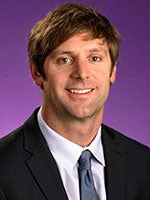PRSP – Positive Responses to Stuttering Program
Specializing in teaching positive responses to stuttering
Positive Responses to Stuttering Program (PRSP) is an intensive summer program for people who stutter, ages 6 and older. The purpose of this program is to teach participants better responses and reactions to the internal sense of loss of control – which is stuttering. This program will identify conscious and subconscious responses and reactions to stuttering that are typically employed by people who stutter. The goals of this program are to help participants choose approach behaviors over avoidance behaviors, while also learning new speech patterns to more efficiently work through moments of stuttering.
Since the experience of stuttering includes covert symptoms (i.e., substitutions of words and avoidance of sounds, words, people and places), along with overt manifestations (i.e., repetitions, prolongations, and postural fixations), a comprehensive approach to treatment is necessitated. To this point, we work with the participants to OWN THEIR SPEECH – meaning they come to a place of acceptance of stuttering while also taking back control of their speech, when necessary, during moments of stuttering.
Through PRSP, we aim to enable participants to become better communicators. Because no cure currently exists for stuttering, our goal for participants is not for stuttering to be eliminated. Instead, we desire for our clients to choose positive responses to moments of stuttering.
Is PRSP for you?
Do you:
- Avoid talking in social situations?
- Avoid asking questions?
- Substitute words that are easier to say?
- Work a job that requires little speaking?
- Fear your future because of stuttering?
- Not say exactly what you want to say because of stuttering?
We Help Participants:
- Choose positive responses to the internal sense of loss of control – which is stuttering, which includes:
- Choosing approach behaviors
- Decreasing avoidance behaviors
- Learning new speech patterns which help to work through moments of stuttering
Staff

Dr. Patrick Briley is a clinical researcher in the Department of Communication Sciences and Disorders at East Carolina University. Dr. Briley is a licensed and certified speech-language pathologist. He specializes in the area of stuttering.
Other members of the PRSP team who will be working with clients are trained clinical supervisors and graduate student clinicians who have been trained by Dr. Briley.
Enrollment
This year, PRSP is taking place June 9, 2025 to June 13, 2025 from 9:00 am to 3:00 pm. Please return completed application form by May 31, 2025 to:
Patrick M. Briley, PhD, CCC-SLP
Department of Communication Sciences and Disorders
East Carolina University
3310AC Health Sciences Building, MS 668
Greenville, NC 27834
brileypa@ecu.edu
252-744-6092
Experiences
One participant stated, “Overall, my life has been less stressful [as a result of participating in the program]. I have higher self-esteem; life is definitely better”.
A mother of one of the participants wrote the following, “Life is so much brighter now!! The first conversation I had with my son without a stutter in almost 20 years was when he was still in your program!!! Needless to say when I got off the phone, I was balling my eyes out!! Your program changed my son’s life!! Jobs that he went in to apply for before wouldn’t even take his business card, they are taking them now! He is getting more opportunities than he ever has before AND he has a job at Tesla!! Entry level and not what he went to college for or what he wants but NOW he knows he is able and is actively seeking to move up in this company or another. He has a bright future and we cannot thank you ENOUGH for your program and what you are doing to help those that stutter!! With much gratitude! THANK YOU, THANK YOU, THANK YOU!!”
Another parent shared this regarding his daughter, who attended the program. “I wanted to share a quick progress report on [client’s name] because I credit you and your system for her progress… She is now comfortable talking in a group setting and she even took the lead during an interview for her National History Day project. As a parent, I am sure you can understand how that warms my heart to see [client’s name] doing so well considering how she struggled when she was younger. We don’t say it enough but I just wanted to thank you for all your efforts and working with [client’s name].”
Participants of the program have remarked on how their view of stuttering has changed after attending the program and how they have become less fearful of communication because of this experience. The transformations from day 1 to day 14 have been remarkable in many regards. The fear of speaking is reduced dramatically, and clients have many opportunities to experience communication to build upon their successes. Participants learn that managing stuttering is achievable, and the goal of this program is to establish a foundation of effective communication for which future successes can be expanded.
One participant called and rescheduled his dentist appointment, which he had never done before. In the past he would always get a friend to call for him for fear of stuttering. He also stated that he is now able to talk on the phone at work with more ease and less anxiety. He is speaking openly about his stuttering at work, which is also a first.
On the day we transferred usage of techniques within the community, another participant returned to the group holding 3 job applications which she asked for herself. She stated that she went into several stores, unprompted, to ask for things that she did not even need or want just because she was finally able to do so.
Another participant arrived to the program on a few occasions, excited to tell us that he had been to a restaurant and ordered his own food – an experience that was new to him.
Yet another participant asked for his sandwich without tomatoes, which he had never done in the past because of his stuttering.
One participant who was unable to speak during his high school senior project (just a few weeks prior to the start of the program) presented to the group or participants and clinicians for nearly 20 minutes. By the end of the program, he had faced many additional fears such as initiating conversation with others, using the phone, and ordering food at restaurants.
During the final week of the program, the father of one of the participants spoke to the director and explained that conversation with his daughter had been different. He said that she was able to verbally express her thoughts without changing words and communication for her was simply easier. He finished the conversation by saying that, looking ahead to ECU next summer, he would like her to attend the program again.
The youngest participant to date in the program, a 6 year old, was seen before the beginning of the program. His stuttering was considered overtly severe and covertly moderate. By the end of the program, his management of his stuttering had increased drastically. A maintenance schedule was put in place with his school therapist and 4 months after the completion of the program, his mother wrote, “I just wanted to touch base with you and let you know how great James is doing. Praise the Lord, right now the stuttering is very mild and if he does start to, he can use [a technique] to get through it (when prompted). I’ve also had our neighbor to tell me how well he is talking now”.
